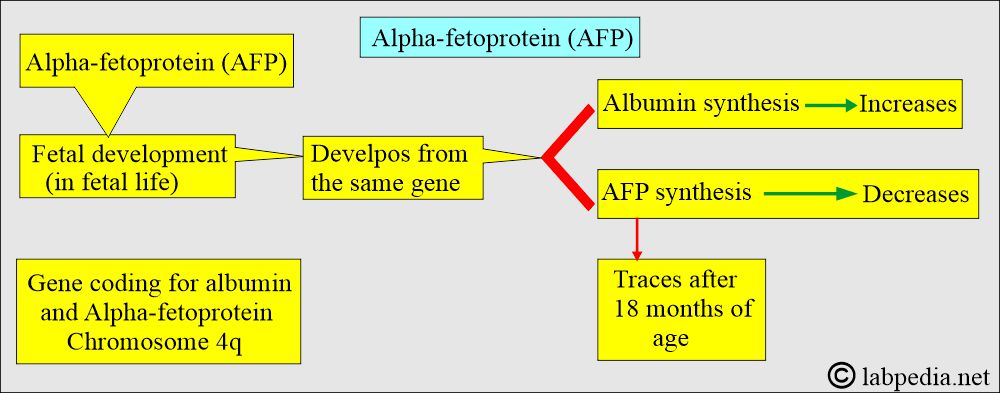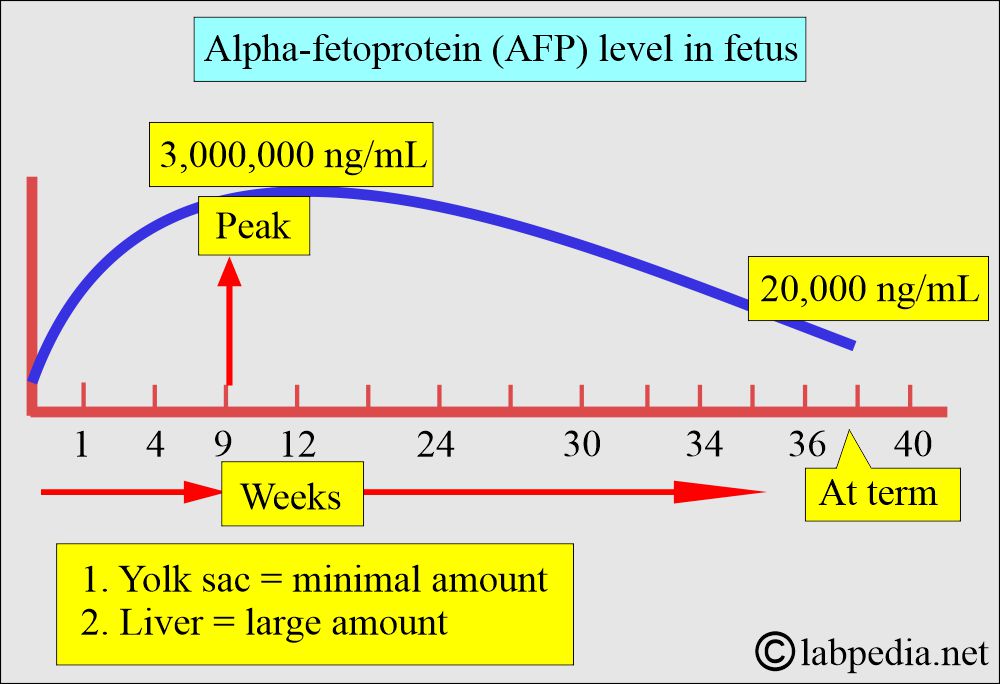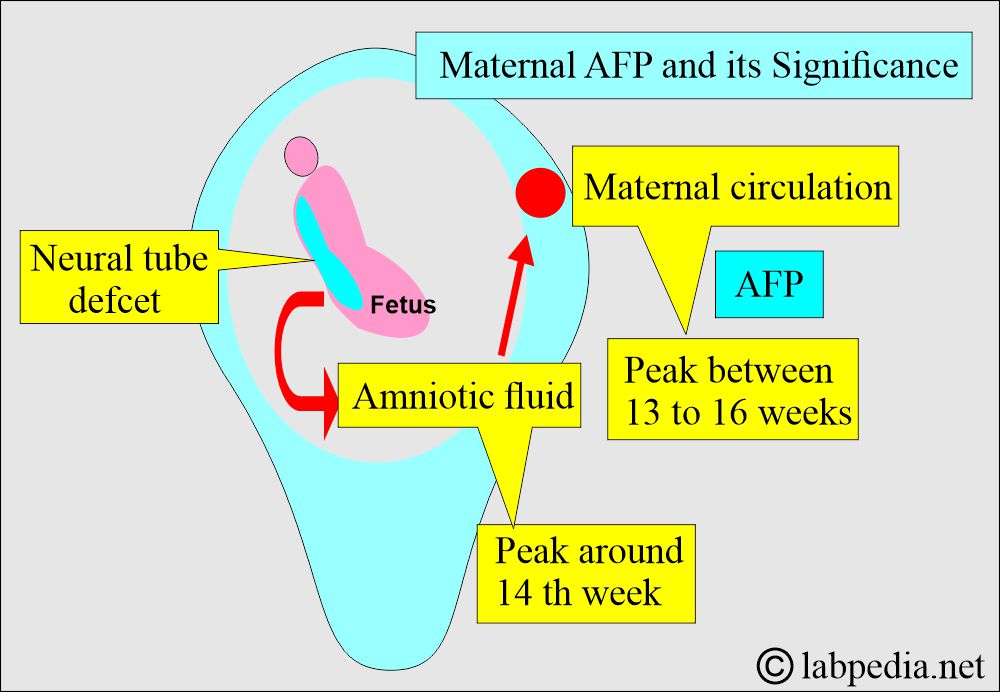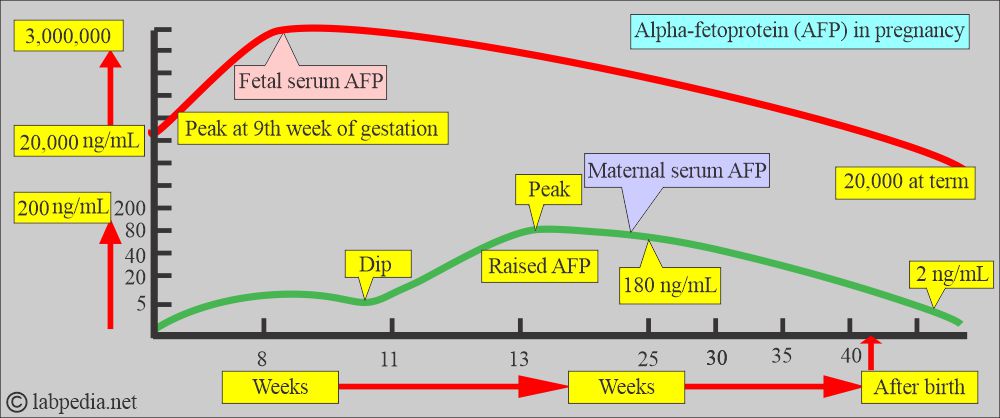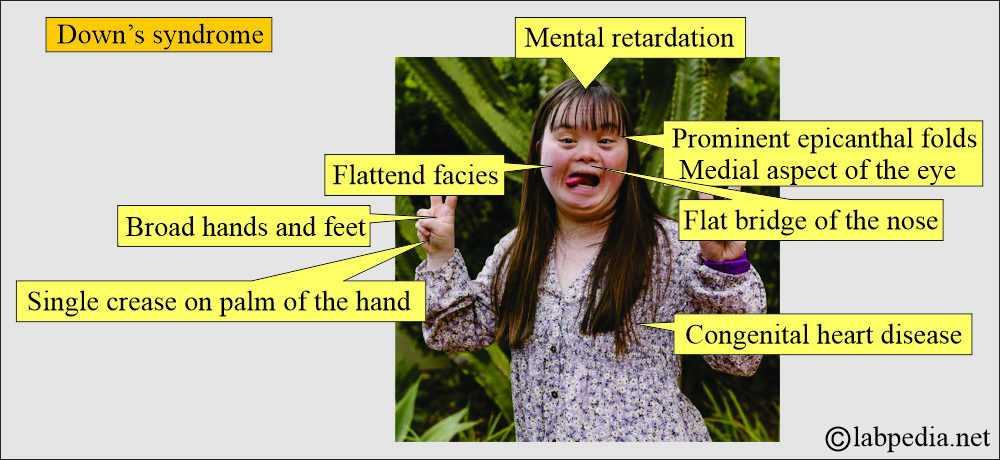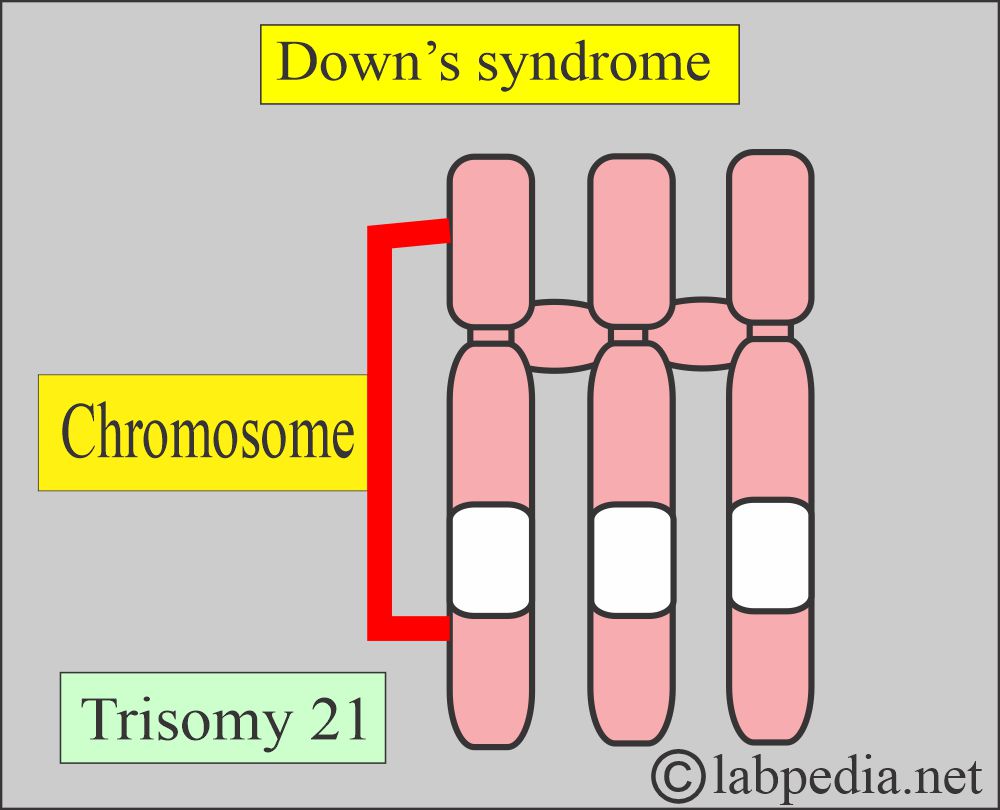Alpha-Fetoprotein (AFP), α-Fetoprotein and its Significance
Alpha-Fetoprotein (AFP)
What sample is needed for Alpha-Fetoprotein (AFP)?
- This test is done on the patient’s serum.
- The serum may be stored at 2 to 8 °C for 24 hours; otherwise, freeze it.
- How to get good serum:
- Take 3 to 5 ml of blood in the disposable syringe or the vacutainer. Keep the syringe for 15 to 30 minutes at 37 °C and then centrifuge for 2 to 4 minutes to get the clear serum.
- Mother serum may be taken between 13 and 16 weeks of gestation.
- No special preparation is needed.
What are the indications for Alpha-Fetoprotein (AFP)?
- AFP is used as a screening test for increased risk of fetal defects like:
- Neural tube defect.
- Fetal body wall defect.
- Chromosomal abnormalities.
- In the case of neonatal hepatitis, where the level is >40 ng/mL, from the neonatal biliary atresia where the level is level is <40 ng/mL.
- It is advised for placental diseases during pregnancy.
- This is also used as a tumor marker for various tumors, especially liver cell carcinoma.
- AFP is the tumor marker for liver cell carcinoma and germ-cell (non-seminoma) carcinoma.
- It is ordered in the cancers of the ovaries and testes.
- This is a good marker for the follow-up and prognosis of liver cell carcinoma and to monitor the therapy.
How will you define Alpha-Fetoprotein (AFP)?
- AFP (α-Fetoprotein) is a principal protein in the fetus, and its function in the adult is unknown.
- AFP is the most significant protein found in the second trimester of the fetus.
- This is a transport protein produced by the fetal liver with functions similar to albumin in infants and adult body fluids.
- Due to its large molecular weight, it is found in amniotic fluid and maternal circulation in a minimal amount, so it cannot cross the fetoplacental circulation.
What is the Alpha-Fetoprotein (AFP) structure?
- AFP is a glycoprotein; the fetal liver, gastrointestinal tract, and yolk sac produce it.
- AFP is an oncofetal protein produced by the fetal liver and yolk sac.
- Its molecular mass is 70 kD.
- It consists of a single polypeptide chain and 4% carbohydrate.
- It is produced in large quantities in fetal life from the fetal yolk sac and liver.
- It is related both genetically and structurally to albumin.
- The gene coding for both is localized to chromosome 4q.
What do you know about the fetus’s Alpha-Fetoprotein (AFP) level?
- The peak production in the fetus is by 13 weeks of gestation, then declines.
- The AFP may be found in the mother’s serum and amniotic fluids.
- AFP level is high in twins and multiple fetuses.
- The modestly raised level may be seen in the regenerative process of the liver.
- AFP may serve to monitor the course of liver cell carcinoma treatment.
- The AFP level correlates with the tumor size in embryonal malignant teratoblastoma of testes and ovaries, so measuring it helps monitor the course of the disease.
- AFP is raised in 70% of liver cancer.
What are the functions of Alpha-Fetoprotein (AFP)?
- AFP’s role is to bind and transport substances that are not water-soluble, such as:
- Steroid hormones.
- Lipids.
- Vitamins.
- Bilirubin.
- Maternal AFP is lower than the expected value for Down’s syndrome.
- There is a higher level of AFP in neural tube defects.
What is the normal value of Alpha-Fetoprotein (AFP)?
Source 1
| Age | mg/dL |
|
|
|
|
| ng/mL | |
|
|
|
|
|
|
| Maternal | |
| Week of gestation | ng/mL |
|
|
|
|
|
|
|
|
|
|
|
|
|
|
|
|
Source 2
- Adult = <40 ng/mL
- Child < 1 year = <30 ng/mL
Another source
| The level at different ages | Alpha-fetoprotein (AFP) level |
|
|
|
|
|
|
|
|
|
|
|
|
What is the significance of Alpha-Fetoprotein (AFP)?
- It is a marker of Liver cell carcinoma, where greater than 500 ng/dl is found in more than 70% to 80 % of the patients.
- AFP greater than 1000 µg/L suggests cancer (>500 ng/mL) is diagnostic of hepatoma.
- It is slightly raised in Cirrhosis.
- Lower levels may be found in patients with large metastasis from Gastric or Colon tumors and patients with acute or chronic hepatitis.
- The presence and persistence of a high level above 500 ng/dl in an adult with liver disease and without any obvious GIT tumors is strongly suggestive of hepatocellular carcinoma.
- AFP may be found in the germ cell tumor.
- AFP is raised in pregnant women and neonates.
- It is raised in Choriocarcinoma and Embryonal carcinoma.
- Less commonly raised in Pancreatic carcinoma, Stomach carcinoma, Colon cancer, and lung cancer.
- AFP levels are more significant in twin pregnancies.
- The mother’s serum raises AFP levels in neural tube defects like spina bifida, anencephaly, myelocele, and hydrocephalus.
- Ultrasonography can confirm this, and the pregnancy may be terminated if the defect is serious.
- The AFP level is estimated to be highest during the 13th to 16th week of pregnancy, when the fetal production of AFP is highest.
- An adult increased level indicates hepatocellular tumor.
- An increased fetal level indicates a neural tube defect.
Neural tube defects and alpha-fetoprotein (AFP)
How will you define neural tube defect?
- Neural tube defects occur in the early first trimester as the spinal cord and brain develop from an embryonic structure called the neural tube.
- Failure of the neural tube to fuse leads to:
- Spina bifida, or meningomyelocele, is caused by a congenital opening in the spinal cord membrane through which the cord protrudes.
- Encephalocele is a central nervous system defect involving the brain. It is caused by a congenital opening in the skull with the protrusion of brain tissue.
- Anencephaly occurs when the fetus does not develop the cerebrum. The brain, particularly the cerebrum, is greatly reduced due to the failure of the neural tube to close during organ formation.
- Amniotic AFP is more accurate than maternal serum AFP in diagnosing neural tube defects in early gestation ( around 14 weeks).
- The AFP is very high at the 8th week; it dips at 11 weeks and peaks again at 13 weeks. It then falls in a long-linear fashion until 25 weeks.
How will you diagnose neural tube defects?
- AFP is more than double the normal value before 14 weeks, helping to diagnose neural tube defects.
- A high-resolution ultrasound can find this defect.
- There is an increased level of AFP in the amniotic fluid.
- Normal AFP <2.5 Multiples of the median (MoM).
- For the neural tube, the defect is >2.5 MoM.
Down’s syndrome and alpha-fetoprotein (AFP)
How would you define Down’s syndrome?
- It is the most common autosomal trisomy.
- Karyotyping shows 47 chromosomes with trisomy in the 21-22 chromosome group, which has three chromosomes.
- In most patients, it is caused by translocation, as seen in chromosome 14. (called group D)
- It occurs in about 1 in 800 live births.
- It increases with the increasing age of the mother >35 years.
- This is a serious congenital disorder of autosomal chromosome 21 with either trisomy of the long arm or translocation or mosaic of the long arm, mostly in the q21.1 to q22.3 region.
How is the clinical presentation of Down’s syndrome?
- Congenital heart defect.
- Muscular weakness.
- Growth and mental retardation.
- Flat facial profile with slanting eyes.
- Broad, short skull.
- Broad hands with short fingers.
- An anatomical defect in the esophagus.
How will you diagnose Down’s syndrome (Tripple screening)?
- Tripple screening:
- AFP level is low (25% less than the normal level).
- Decreased unconjugated estriol.
- Increased chorionic gonadotropin.
- Quadruple screening when Dimeric inhibin A is added.
- Chorionic villus sampling by the 10th week.
- Karyotyping was obtained from the fetal cells in amniotic fluid by the 18th to 20th weeks of gestation.
What are the causes of raised alpha-fetoprotein (AFP)?
- 100% of the metastatic liver cell carcinoma.
- Screening of liver cell carcinoma. It is raised in 80% of the cases.
- In 50% of nonseminomatous testicular cancer.
- Choriocarcinoma and embryonal carcinoma.
- Noncancerous causes are:
- Cirrhosis.
- Chronic active hepatitis.
- AFP levels are raised in twin pregnancies.
- In 5 to 10% of patients with cirrhosis and hepatitis.
- In alcoholic liver disease.
What are the causes of decreased Maternal alpha-fetoprotein (AFP)?
- Down’s syndrome (Trisomy 21).
- Fetal wastage.
What is the role of Alpha-fetoprotein (AFP) in diagnosing liver cancer?
- AFP is raised for 18 months before the symptoms appear.
- The sensitivity of the AFP for liver cancer is 60%.
- >1000 ng/ml indicates liver cell carcinoma in 50% of the cases, and the tumor size is around 3 cms/.
- 90% of the hepatoma has >200 ng/mL of AFP.
- 70% of the cases have>400 ng/mL.
- A very high level at the diagnosis indicates a poor prognosis.
- If the AFP level does not return to normal after the surgery, it indicates incomplete surgery.
- The postoperative decrease indicates surgical removal, but if AFP again starts rising, it is due to the recurrence of the tumor.
- While 40% of liver cancer may have a normal value, the normal level of AFP does not rule out the possibility of liver cancer.
- Elevated AFP levels may be seen in other conditions as well.
- Although the FDA does not recommend AFP for cancer screening, it detects and monitors liver cell carcinoma and other tumors like conditions, testes and ovaries, retroperitoneum, and mediastinum.
What is the role of Alpha-fetoprotein (AFP) as a tumor marker?
- Liver cell carcinoma.
- Testicular germ cell tumors.
- Gastric carcinoma is seen in 18% of the cases.
- Pancreatic carcinoma is seen in 123% of the cases.
- Bronchogenic carcinoma is seen in 7% of the cases.
- Colon carcinoma is seen in 7% of the cases.
- Other possible causes of raised AFP:
- Nonseminomatous germ cell tumor.
- Testicular Teratocarcinoma is seen in 75% of the cases.
- Yolk sac tumors.
- Germ cell tumors of the ovaries and testes:
- Embryonal cell carcinoma (value increased in 27% of the cases).
- Malignant teratoma (value increased in 60% of the cases).
- Sometimes, it may be seen in:
- Hodgkin’s lymphoma.
- Lymphoma.
- Renal cell carcinoma.
Questions and answers:
Question 1: What is the significant level for liver cell carcinoma?
Question 2: What is the recommendation for AFP by the FDA.

